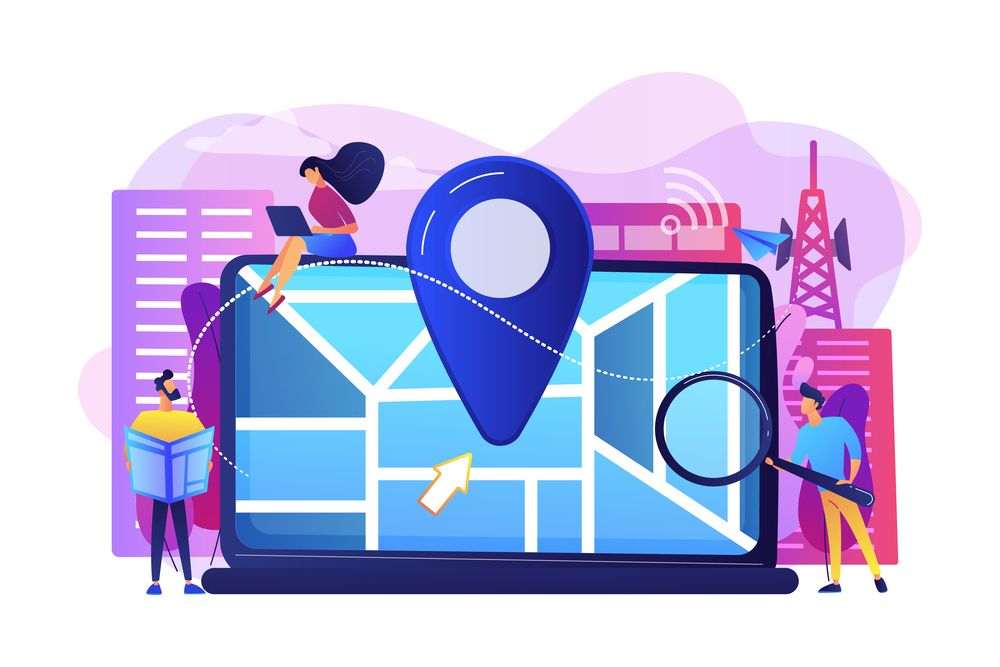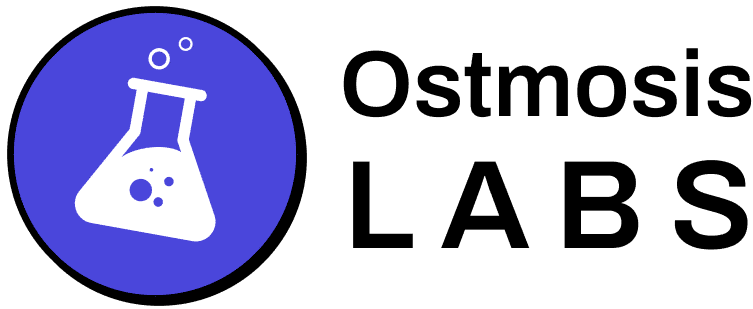SEO is the lifeblood of the sprawling world of Google Search. In this journey, SEO turns search engines into solid allies, catapulting your small business to the top of any local search result and attracting streams of prospective customers. This starts with an actionable Google Business Profile, optimization of the website’s user experience, and thorough keyword research.
It is not only about increasing website traffic; it is also about offering a product or service that is easily located by those who most need it: the local customer. Be prepared to watch your online presence go into flames in revolutionary ways as we unleash the basics of small business SEO and its enormous impacts on your ranking.
Understanding The Target Audience

Effective SEO isn’t just about playing the keyword game; it’s deeply rooted in understanding who is searching for your product or service. As a small business owner, recognizing the importance of knowing your audience can significantly magnify the visibility and ranking of your local business in search engine results. Here are some actionable tips to zero in on your target demographics:
- Keyword Research: Dive into keyword research to uncover potential customers’ search terms. This insight helps tailor your content, making it highly relevant and improving your Google search presence.
- Analyze Behaviors and Interests: Use tools like Google My Business Insights to understand your audience’s behaviors and interests. This data will guide you in optimizing your Google business profile and website content.
- Local SEO Tactics: Embrace local SEO strategies by ensuring your business appears in local search results, which will connect you with customers searching for your product or service in your area.
- Monitor Your Ranking: Regularly check your ranking in search results to understand how well you reach your intended audience and adapt your SEO strategy accordingly.
By identifying your target demographics and understanding their behaviors and interests, you can enhance user experience, drive more traffic to your website, and, ultimately, help small businesses like yours grow.
The Role Of Local Search Optimization

Local SEO is the unsung hero for small businesses aiming for significant growth. Understanding and optimizing for local search results can dramatically increase visibility to your local customer base. Here are essential steps to elevate your local SEO game:
- Google My Business Setup: Create or claim your Google Business Profile. This free listing makes your business appear in Google Maps and local pack search results, which is crucial for small businesses looking to attract more local customers.
- Optimize with Local Keywords: Use local keywords relevant to your business and area in your website content, titles, and meta descriptions. This ensures search engines understand your business’s location and services, improving local search rankings.
- Consistent Business Information: Ensure your business name, address, and phone number (NAP) are consistent across your website, social media, and local directories. Accuracy here boosts SEO ranking and helps potential customers find you easily.
- Local Link Building: Links from reputable local businesses, directories, and newspapers strengthen your SEO foundation. This improves your search engine visibility and signals to search engines that your website is a trusted local resource.
By focusing on these practical steps and showcasing your business in the local digital landscape, small businesses can leverage SEO for significant growth. Remember, local SEO isn’t just about being found; it’s about being seen by the right people in your area.
The Power Of Keyword Research
Keyword research is the backbone of effective SEO and can be a game-changer for small businesses targeting growth. By pinpointing your potential customers’ exact search terms, you can tailor your content to meet their needs and climb the ranks in search results. Here’s how to master keyword research:
- Understand Your Market: Identify words or phrases closely related to your product or service. Think like a customer: what would you type into Google to find your business?
- Use Keyword Tools: Leverage tools like Google Keyword Planner or SEMrush to find keywords with high search volume but low competition. These tools also provide insights into search trends that can help you refine your strategy.
- Focus on Local SEO: Local keywords can drive significant traffic for small businesses. Integrate location-specific terms alongside your service keywords (e.g., “coffee shop in Austin”).
- Optimize Your Website: Incorporate these keywords into your website’s content, meta titles, descriptions, and URLs to boost your SEO ranking and enhance visibility.
- Evaluate and Adapt: SEO is not a set-it-and-forget-it task. Regularly analyze your keywords’ performance and adjust your strategy to stay ahead of competitors.
Keyword research improves Google search rankings and significantly boosts traffic to your website, creating more opportunities for conversion. Start optimizing today and turn searches into sales!
Creating High-Quality Content

Think of quality content and SEO as two peas in a pod—neither can genuinely succeed without the other when running a small business. Good, engaging content will optimize your SEO for small businesses, increasing your ranking and making your brand more discoverable with local customers.
- Types of Engaging Content: The repository should be populated with a diverse range of engaging blog posts, infographics, videos, and how-to guides that will attract the interest of your audience. Let each relate to your business and build value in the user experience.
- SEO Content Strategies: Start with the following activities:
- Deep understanding of your business objectives and your audience
- Targeting local keywords and optimization for local search results
- It features content that answers customers’ common queries and showcases expertise in your business.
- Linkable Assets: Once valuable, informative content is created, others will want to link to it; this is how you establish authority and improve your SEO ranking. Connect your content with local directories and optimize your Google Business Profile to enhance local visibility.
Also, remember that consistency in business information and SEO practices solidify the bedrock of your small business website’s SEO. Continuously refining your content will keep your audience coming back for more, and the search engines will inform you that your website is the authoritative result in your local area. Effective SEO is your digital megaphone. Make sure it’s heard loud and clear.
Building Backlinks
Backlinks are not just links; they are a vote of confidence from one site to another and are very important to improve the SEO of your small business. Now, let’s get into the meat of how to acquire those golden tickets to higher search rankings and better visibility on Google search results.
Acquiring Quality Backlinks:
- Creating valuable, shareable content that naturally attracts backlinks.
- Guest blogging on reputable sites in your industry.
- Use local SEO by listing your business on local directories and optimizing your Google Business Profile.
Networking for Success: Building a relationship with local businesses and influencers within your industry will go a long way in opening doors for possible backlinks. In addition, this will solidify your presence within the local search ecosystem. Bear in mind that recommendations from trusted websites will serve many purposes: not only does such a recommendation promote you, but it may also drive traffic to your website and introduce your product or service to prospective customers.
Target your keywords and search terms relative to your business, incorporating them organically into the content. In this manner, you will maximize your opportunity to appear higher in search engine results for customer inquiries. Remember, backlink building is one of the critical variables of SEO and local SEO when establishing your small business as a trusted and authoritative element on the internet.
Website Optimization For Speed And Mobile Usability
Speed and mobile usability can rocket your small business’s SEO ranking in this fast-paced digital browsing world. Here’s the quick on making your business website a slick, SEO-friendly machine:
- Speed is Key: A slow-loading site might cost you dearly in terms of visibility and potential customers. Use tools like Google PageSpeed Insights to analyze and optimize your website’s performance. The quicker the load, the higher the engagement.
- Mobile-friendliness: Since most searches are online, mobile optimization must be noticed. Thus, if you run a local business, mobile usability stands out in local search results and brings more customers to your door.
Mobile optimization includes:
- Responsive design that adjusts seamlessly to smartphones and tablets.
- Simplified menus and clickable links just help make navigation easy.
- Fast loading times for users searching for your business on Google.
- Methods to Twist that Optimization Dial:
- Compressing and optimizing images, among others, can be done to reduce load time.
- Minify code and leverage browser caching for the best possible user experience.
- Run the Google Mobile-Friendly Test on your site to see how it judges your site’s usability on smaller screens.
Keep in mind that SEO for small businesses is much more than keywords; it’s about creating a seamless, fast user journey from search term to checkout. By focusing on technical SEO and optimizing your website for local SEO, you’re setting the foundation for SEO success and effectively touting your business to your local area and beyond.
Monitoring and Refining SEO Performance
Unlock the full potential of your SEO strategies by diving deep into performance monitoring. It’s not just about setting up; it’s about tweaking and refining for peak performance. Here’s how to stay on top of your SEO game:
- Track Like a Pro: Use Google Analytics, a powerful tool, to monitor your website traffic, keyword rankings, and user experience. Small business owners must understand what attracts potential customers and keeps them engaged.
- Analyze and Optimize: Notice a spike in your search results? Dive into why and replicate that success. Low visibility? Refine your keyword research and content strategy. SEO for small businesses is a constant game of adjusting and implementing.
- The Local Angle: Optimizing local businesses’ Google My Business profiles ensures they stay visible in local searches and Google Maps, attracting more local foot traffic.
SEO is a marathon, not a sprint. Small businesses must embrace a consistent and proactive approach, leveraging insights from analytics to fine-tune strategies. Remember, the benefits of search engine optimization, especially for local SEO, are vast: increased visibility, higher website traffic, and a significant boost in potential customers. Embrace SEO as a long-term investment for your business growth; the dividends will pay off the manifold. Keep refining, optimizing, and watching your small business soar in the search engine results.


